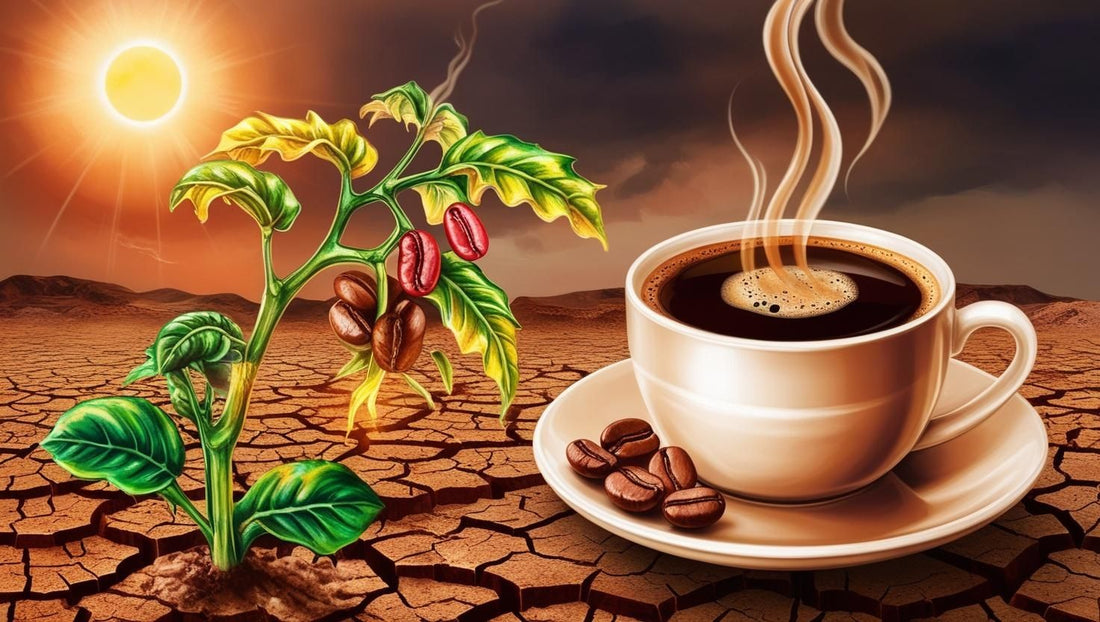
The coffee is warming up, the planet too
Share
With global warming, we are observing an increase in torrential rains in tropical regions. Where coffee grows. Some crops are unfortunately affected.
Deforestation is illegal in Brazil, it creates a lot of carbon in the air and further affects global warming. Many coffee crops have gone through massive deforestation before being planted.
Torrential rains and reduction in production
We can already see the effects of global warming being felt in Colombia. In 2017, some regions had no coffee production following heavy rains the previous year. They have reduced their production by at least 14 million bags.
According to Climate Institute cited in futura-science, coffee production will drop by 50% by 2050 because of global warming. It is Arabica coffee, the one most consumed, which will be the most affected, because it cannot withstand the high heat or the increase in CO2. This risks creating a real socio-economic problem as several countries are dependent on this single source of production.
In Brazil, the land is less and less capable of supplying coffee. Production has decreased by 11% since 2016. Plantations have become victims of several diseases due to all these climate changes.
Producing polluting coffee
A study dated 2006, collecting data from 56 plantations in Brazil, evaluates
that producing a ton of green coffee has a significant ecological impact, here are the facts in figures:
- 11,437 liters of water for a ton of coffee beans...
- 10 kg of pesticides and 911 kg of fertilizer.
- Energy use 10,670 MJ, including 94 kg of diesel
Coffee producers are hungry
What we see less when we buy our coffee at the local grocery store is how climate change is already affecting the families who produce coffee.
Since the start of the 20th century, producers' income has fallen by two thirds. In the photo, we see a child working on a coffee farm in Thailand to help her family meet their needs.
120 million people make a living from coffee production in 70 different countries. It is an entire population that is suffering from global warming, who are poorly paid, and who are hungry.
Possible solutions
But before the problems get worse, we must act by consuming responsibly.
But how can you do without the aromas of morning coffee?
How to wake up without coffee?
Is it possible to replace our favorite beverage?
Let's be realistic, change happens gradually. There is no need to stop drinking coffee overnight. But to be aware of the impacts of our coffee consumption. There are several alternatives that we can adopt today.
Fair trade and organic coffees help small communities grow by giving them proper wages.
Also, Les Siffleux is committed to creating coffees made from berries and roots mainly from Quebec. By producing locally, we reduce our carbon impact and enhance the local economy. Organic plants in our coffees are necessary to keep our planet healthy.
To begin with, I suggest the POP , it comes close to the taste of coffee thanks to the oven roasting of the carefully mixed berries and roots. It even brings aromas of maple syrup into the cup, and gives us a feeling of respecting the land that produces our food.
sources:
-BFMTV.com
-futura-sciences.com
-Leda Coltro, “Environmental Profile of Brazilian Green Coffee,” The International Journal of Life Cycle Assessment , vol. 11, no 1, 2006, p. 16-21
